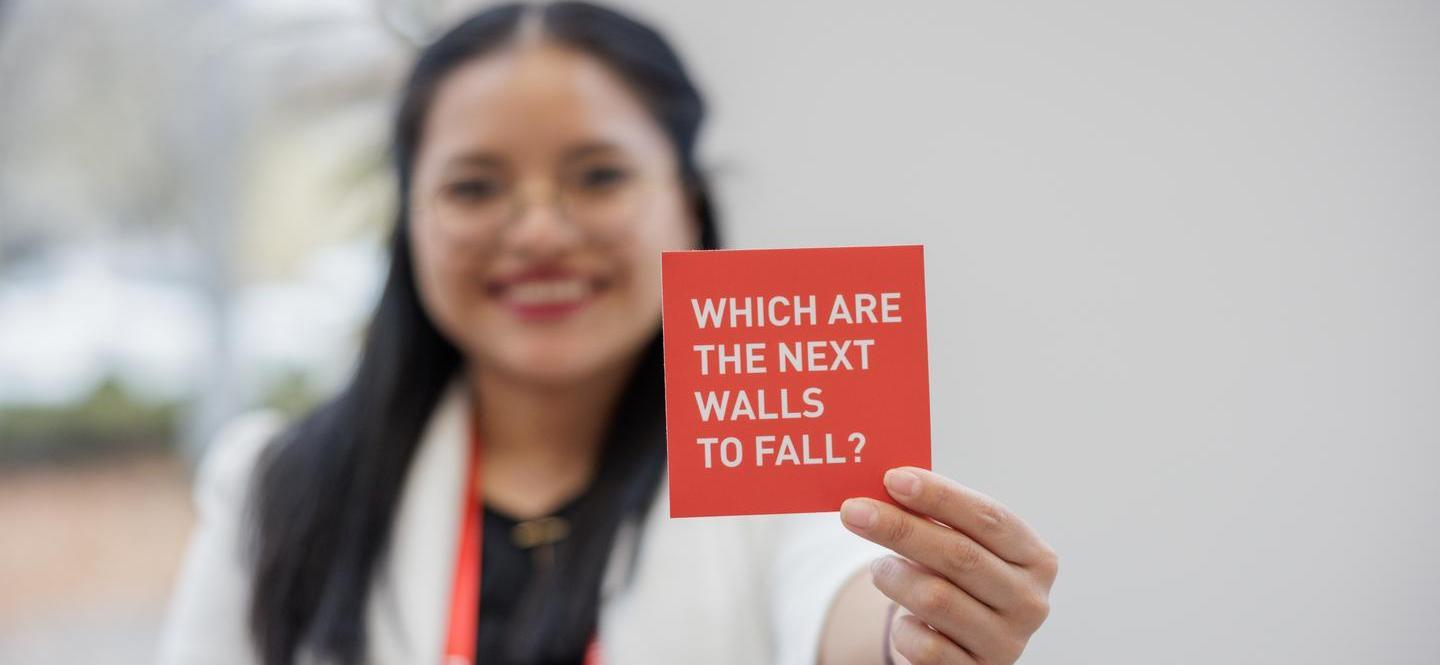
Ole Spata für Falling Walls
In Brief
The Volkswagen Foundation at Falling Walls 2025
Register now for the free livestream: Falling Walls will take place in Berlin from 6 to 9 November 2025. Here is an overview of all live-streamed events in which the foundation is involved.
At the Falling Walls Science Summit 2025, the international research community will meet to discuss the latest developments and inform the public about the state of research on the pressing issues of our time. This year's focus areas include science diplomacy, dual-use and defence research, quantum technologies, artificial intelligence and deep tech sovereignty in Europe.
Livestream
Registration required
To participate in the free livestream, you must register at falling-walls.com/livestream-2025 or via the respective event pages.
6. November 2025
- 18:15 Uhr bis 19:00 Uhr, Curie Stage
Falling Walls Pitches: Awards Ceremony
The Falling Walls Science Breakthroughs of the Year 2025 awards will be presented to outstanding innovative minds from around the world in the categories Emerging Talents, Science Start-ups, Science Engagement and Women's Impact. The Volkswagen Foundation is once again presenting the Women's Impact Award this year, together with the Elsevier Foundation and as part of the Female Science Talents programme.
7. November 2025
- 9:00 Uhr bis 14:00 Uhr, Curie Stage
Gipfel für Forschung und Innovation:
Time to act – For greater competitiveness in Germany and Europe
Half a year after the new German government took office, the Gipfel für Forschung und Innovation (Summit for Research and Innovation) offers a forum for politics, science, and business to debate current developments in research and innovation policy. As global upheavals, strong competitors and fragile supply chains increase pressure on Europe, the summit explores how the continent can drive innovation and growth by addressing today’s key challenges: transformation, cooperation, and security.
8. November 2025
- 12:00 Uhr bis 13:00 Uhr, Franklin Stage
Technology Foresight: Shaping Tomorrow's Innovations (Round Table)
Anticipating change is key to staying ahead. This panel explores how technology foresight supports strategic planning and long-term innovation. Experts will discuss methods for identifying emerging trends, assessing uncertainty, and informing decision-making in research, policy, and industry. - 1:00 p.m. to 2:00 p.m., Curie Stage
Academia under Attack: Action against Antidemocratic Threats (Plenary Table)
This Plenary Table explores the growing challenges to academic freedom amid rising populist and authoritarian tendencies in Western democracies. It will examine how these forces are manifesting in various contexts, from subtle policy shifts to overt censorship and attacks on academic freedom and academic institutions. Focusing on the US and Europe, the discussion aims to inspire action to protect a central cornerstone of intellectual inquiry and democratic societies. - 15:00 Uhr bis 16:30 Uhr, Ann Jackson Stage
AI Age & Trust: Ethics and Perspectives for SciComm (Treffpunkt Wissenschaftskommunikation)
As AI becomes integral to research, public trust in science faces new challenges. This panel explores ethical dilemmas and journalistic responsibilities in accurately communicating AI-driven findings. Topics include the role of fact-checking, transparent reporting, and the impact of AI on scientific integrity. How can we ensure responsible use of AI while promoting unbiased, evidence-based information? More information on the event series can be found under "Treffpunkt Wissenschaftskommunikation" (in German).
9. November 2025
- 12:15 Uhr bis 12:30 Uhr, Curie Stage
Breaking the Wall of Healthy Aging in Women
Ângela Gonçalves, German Cancer Research Center (DKFZ)
Endometriosis, ovarian cancer, and menopause — still under-researched and often misdiagnosed. This project combines AI, molecular biology, and clinical insight to develop non-invasive tools for early detection, personalised care, and healthier aging, directly challenging gender bias in medicine.
